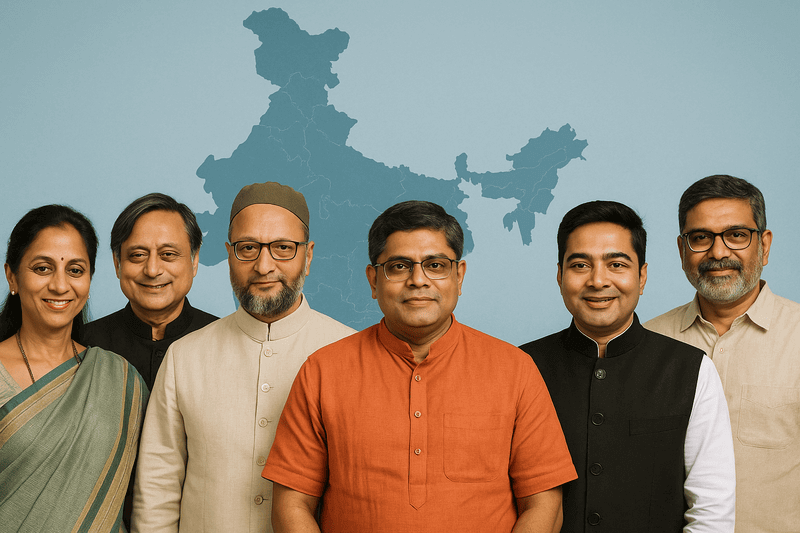In today’s hyper-polarised political climate, one rarely sees genuine unity that transcends party lines, religious identities, and ideological camps. So when the Indian government—under a party whose politics I often critique—sends an all-party delegation to expose Pakistan’s terror networks, I cannot help but appreciate the magnitude and maturity of the gesture.
Let me be clear: I have been, and remain, a critic of the BJP’s domestic policies and political maneuvering. But when a government takes a step that is inclusive, strategic, and in the interest of national security, it must be acknowledged—not out of allegiance, but out of principle. And this move is precisely that.
A Collective Stand Against Terror
India’s initiative, now officially named Operation Sindoor, involves seven all-party delegations visiting over 30 countries—including the US, UK, Russia, France, Gulf nations, Japan, and several African states—to present an unified Indian position on Pakistan-sponsored terrorism. The backdrop is grim: the brutal Pahalgam terror attack in April 2025 that left 26 dead. But the response has been measured, diverse, and democratic—and that’s what makes this different.
This is not the BJP sending a press release. It is India sending a message. Not just through official channels but through faces and voices that reflect the plurality of our democracy.
Diversity in Action: Beyond the Stereotypes
For too long, Pakistan has peddled the false equivalence: that since it’s a Muslim-majority nation and India has a Hindu-majority population, the conflict is religious. But India has answered that myth—not with propaganda, but with presence.
AIMIM MP Asaduddin Owaisi and former J\&K Chief Minister Ghulam Nabi Azad, both prominent Muslim leaders, led a delegation to Bahrain and other Gulf nations. Their message was unambiguous: Terrorism is a betrayal of Islam, and India stands against it—not Muslims. In doing so, they not only represented India’s position, but also dismantled the lie that India’s Muslims are silent or complicit.
Other delegations included:
- Supriya Sule (NCP) leading the team to Qatar, Egypt, South Africa
- Shashi Tharoor (Congress) in New York, meeting US lawmakers and visiting the 9/11 Memorial
- Kanimozhi (DMK) traveling across Russia, Greece, Slovenia, and Spain
- Abhishek Banerjee (TMC) addressing diaspora in Japan
- Ravi Shankar Prasad (BJP) covering UK, France, Germany, EU HQ, and Italy
Even Shiv Sena (UBT) MP Shrikant Shinde met UAE officials in Abu Dhabi before traveling to Africa. This wasn’t tokenism. It was representation—and a realignment of how India conducts its diplomacy: grounded in pluralism, strengthened by unity, and driven by a shared national interest.
When Political Rivalries Pause for National Duty
These delegations included leaders who rarely agree with each other. Congress MPs sharing platforms with BJP, Leftist voices echoing nationalist concerns, and even religious minorities standing up for a secular India. This is not the India Pakistan wants the world to see—but it’s the India we actually are.
As someone who frequently criticizes the ruling party, I found it particularly meaningful to see Muslim, Hindu, Christian, and Sikh MPs all carrying the tricolor abroad—each reminding the world that our identity is Indian first. Our disagreements at home do not dilute our commitment to India’s global image and internal security.
This, to me, is patriotism: when political allegiance takes a backseat to national integrity.
Not Just Optics—But Strategic Diplomacy
Critics have questioned the need to send delegations to countries like Liberia or Congo. But diplomacy isn’t just about the G7. It’s about gathering moral consensus in every possible forum—from UN votes to media narratives to diaspora support.
Some have called this “diplomatic tourism.” I disagree. If these efforts even marginally reduce terror funding, shift global perception, or put pressure on Pakistan’s double game, they’re worth it.
Credit with Caution
Let’s be clear: this doesn’t mean the government is above criticism. On many fronts—press freedom, inflation, minority rights, and institutional independence—this government still has serious work to do. But praising a strong move on national security doesn’t dilute our vigilance. It shows we’re capable of nuanced patriotism, the kind that doesn’t come with blind loyalty or cheap opposition.
India Is Not Pakistan—and Never Will Be
In the end, that is the message we are sending to the world. That we are not governed by religion, and that democracy, diversity, and dialogue are still our core strengths. While Pakistan shelters militants and uses terror as statecraft, India—despite all its internal arguments—chooses to debate, vote, and speak with many voices as one nation.
This all-party delegation isn’t just foreign outreach. It’s a mirror to ourselves—that even amid deep divisions, we can come together when it matters most.
And that, perhaps, is the most hopeful message of all.



